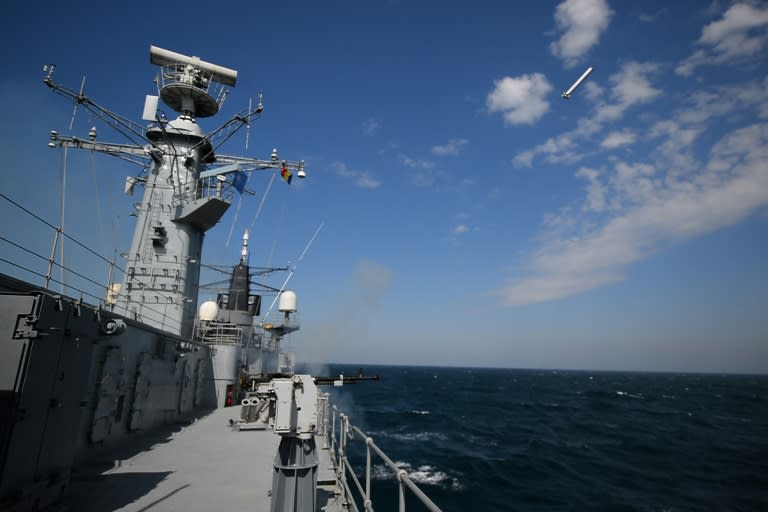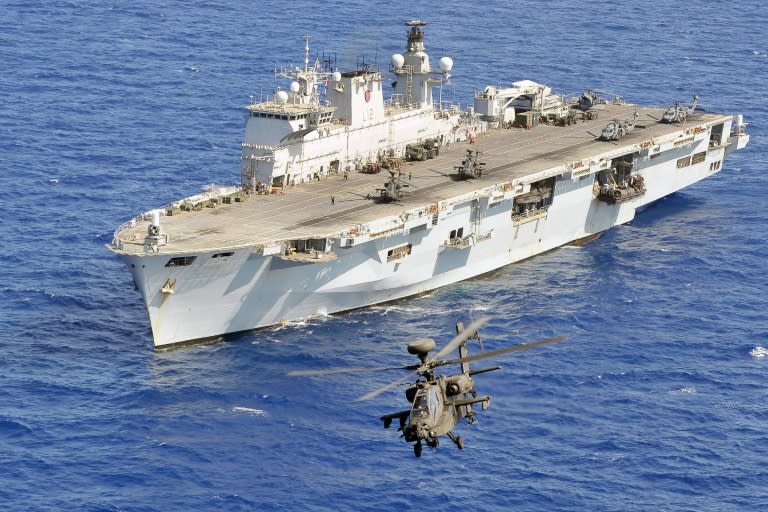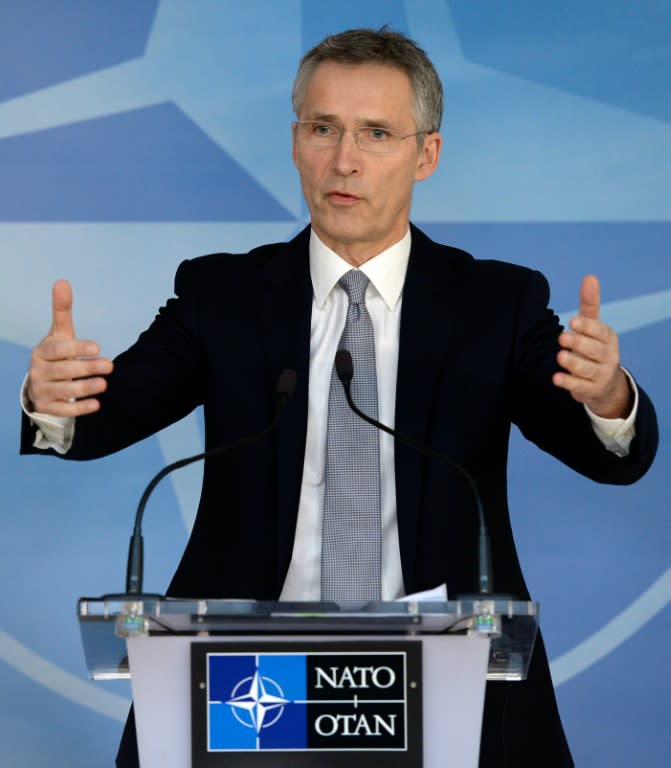NATO sends warships on Aegean migrant mission
NATO launched Thursday an unprecedented naval mission in the Aegean Sea to tackle people smugglers taking refugees and migrants from Turkey to Greece, Secretary General Jens Stoltenberg said. The alliance will deploy at least three warships after alliance members Germany, Greece and Turkey called for help earlier this week to cope with Europe's biggest migrant crisis since World War II. The move came despite a threat by Turkish President Recep Tayyip Erdogan to send millions more refugees to Europe amid a row with the European Union (EU) over responsibility for handling the crisis. "This is not about stopping and pushing back (refugee boats)... but about critical surveillance to help counter human trafficking and criminal networks," Stoltenberg said after NATO defence ministers approved the mission. He said NATO is "now directing the standing maritime group to move into the Aegean without delay and start maritime surveillance activities". The group comprises three ships under German command but there will be more as the situation is reviewed. EU efforts to tackle the problem have only exposed deep divisions while a November agreement with Turkey has got bogged down in mutual recrimination over who is to blame. The NATO chief said the migrant crisis, driven by conflict and turmoil in Syria across the Middle East and North Africa, posed a major security threat to the 28-nation alliance at the same time as it faces new challenges in Europe driven by the Ukraine crisis. It is a major departure for NATO, an alliance formed in the depths of the Cold War and which normally focuses on strictly military matters. German Chancellor Angela Merkel made the call for help Monday in Turkey as thousands more refugees fled heavy fighting near Aleppo in northern Syria only to be held back on the border. Turkey is home to some 2.5 million refugees and their future is increasingly uncertain with prospects of a return home disappearing as efforts to find a peaceful solution to the Syrian conflict flounder. On Thursday, Erdogan threatened to send more refugees to Europe, slamming the EU for treating Ankara as though it were an "idiot" and shirking its responsibilities. Asked about Erdogan's statement, Stoltenberg declined direct comment, stressing instead that the Aegean naval mission had been backed by all 28 NATO member states. He noted too that AWACS surveillance planes and other surveillance resources deployed to bolster Turkey in December as the Syrian crisis deepened would now also be used to step up monitoring along its border with Syria. - EU welcome - German Defence Minister Ursula Von der Leyen said that "several NATO members had pledged ships" for the mission. "There is a clear accord with Turkey that any refugees picked up will be sent back to Turkey," she told reporters. Sources said the force would eventually comprise five to seven ships, with the key provision that if they do rescue refugees, as they must do under international law, those migrants will be returned to Turkey. Normally, they would claim asylum in the ship's home country. The European Commission welcomed the plan but reiterated that it aimed to create its own border and coast guard system to fulfil the same function. "This is a decision we welcome. We hope that lives will be saved in the Aegean Sea," commission chief Jean-Claude Juncker's spokesman Margartis Schinas told a news briefing. "We regard this as very much a sort of a forerunner of the European coast guard, going back to proposals made in December," he said. Turkey -- the only Muslim-majority nation in NATO and with one of its largest armies -- was the main transit country for the more than one million migrants who reached Europe last year. Having reached Greece, most of them made their way north to Germany and other richer countries in the European Union. More than 70,000 made the dangerous crossing in January, with over 400 dying, according to the International Organization for Migration (OIM). The fear now is that hundreds of thousands more could follow this year with no prospect of a negotiated solution to the war in Syria which has killed more than 260,000 people and displaced half the population since March 2011.




